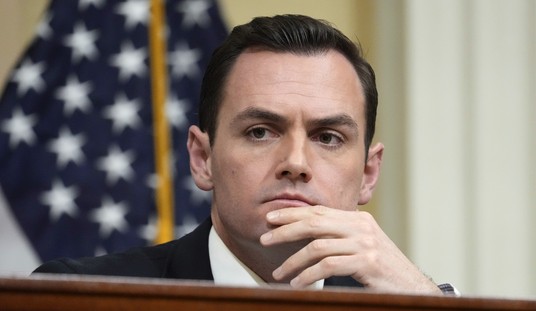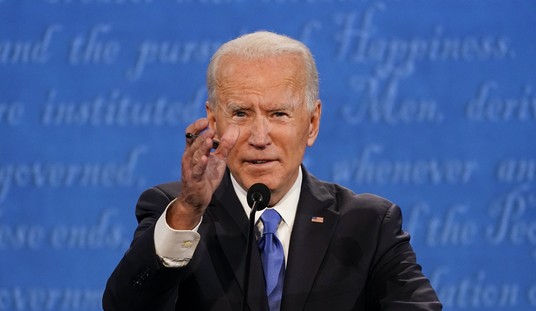This story is the clearest sign yet that some people on the left have learned absolutely nothing from ongoing inflation over 8 percent. Monday the Washington Post Magazine published a puff piece promoting universal basic income. In short, let’s give out trillions of dollars in free money and hope for the best. Incredibly, the word “inflation” does not appear a single time in the 5,500+ word piece. Instead we get stuff like this:
In January 2019, Zohna Everett was sitting in an airport when her phone rang. On the other end of the line, a voice informed her that she had been randomly chosen to receive $500 a month as part of something called the Stockton Economic Empowerment Demonstration.
When Everett had first heard about SEED a few weeks earlier, she’d wondered if it might be a scam, as things that sound too good to be true often are. Her pastor assured her that it was real — that 125 residents of poor neighborhoods in Stockton, Calif., would receive money as part of a groundbreaking experiment. When she got the call, Everett thought she was receiving a one-time payment, which was thrilling enough. Then the woman on the phone told her she’d receive $500 every month for a year and a half, with no strings attached. She nearly collapsed from joy right there in the airport.
Every report pushing UBI always emphasizes this point as if it’s a remarkable insight into the human condition: People like free money. Yes, well, I could have told you that without the necessity of a pilot program. But the fact that free money makes people happy is always cited in “the research” on these programs.
Residents of Stockton, Calif., who received $500 a month from a first-of-its-kind guaranteed-income program were more likely to find full-time jobs, be happy and stay healthy, according to a year-long study published Wednesday.
And that leads us to this grand but circular statement: “If empirical evidence ruled the world, guaranteed income would be available to every poor person in America, and many of those people would no longer be poor.” If we give people money, people will have more money. Wow, what an earth-shattering insight that is. And even the author of this piece eventually admits that’s not much of a finding:
Obviously giving people more money makes them less poor, but the Stockton Economic Empowerment Demonstration team set out to show that as little as $500 a month — not nearly enough to replace actual income — would have a multiplier effect, allowing recipients to improve their employment prospects, their physical health and mental well-being, their children’s education, and their overall stability.
So was there a multiplier effect? Well, maybe? It sounds like the results, which haven’t been peer reviewed yet, once again showed that giving people more money results in them having more money. Plus their mental health improved, though I’m not sure how much or what that means exactly. Does it mean they felt happier in general because, again, I could have told you that for free.
In March 2021, the researchers released preliminary data from the first year of the pilot. While their first peer-reviewed paper is still in the works, their self-reported results showed an unqualified success. More than 50 percent of recipients said they could pay for a $400 emergency expense in cash, compared with 25 percent before the program began and 28 percent of the control group. Recipients experienced statistically significant improvements in their mental health as determined by a common test of psychological well-being.
Another thing these research studies on UBI always claim is that little or none of the money was spent on drugs or alcohol. How do they know that? Well, they don’t know it. Jazz wrote about the Stockton UBI experiment back in 2019 (that Mayor Tubbs who initiated this effort pictured above). Jazz noted at the time that about 40% of the money, which was given out on cards, was withdrawn as cash at ATMs. So where did all of that cash go exactly? I’m sure they tried to keep track of it but what’s to stop recipients from just lying? More to the point, most of the people involved had other jobs. So even if they spent 100% of the UBI money on rent and food, money is fungible. The monthly UBI freed up money they wouldn’t have otherwise been able to spend. Where did that other money go exactly? The point isn’t that everyone in the UBI experiment is a drug addict only that I’m not convinced the research on these programs is sufficiently robust to really tell us where the money went.
Eventually, the story does get around to the reason this brilliant plan hasn’t been widely adopted already.
The most basic objection to guaranteed-income programs is about cost. Providing $1,000 a month to every American regardless of income — which some scholars argue would make the policy more palatable than one targeted to people in poverty — would cost $3.1 trillion a year, nearly half the federal government’s entire budget in 2021.
Last year’s budget was $6.8 trillion and that already included $2.7 trillion in deficit spending. Now this author thinks we can add another $3.1 trillion onto that per year? Where is that money going to come from? Are we going to raise taxes to cover it? Will the top rate become 70%? What’s the plan exactly?
My guess is that the plan is to just add it to the deficit. The existing US national debt is about $31 trillion. Just adding UBI for everyone would add another $31 trillion to that total over the next 10 years. Does that sound like a good idea? What happens to the inflation rate when the government pours out another $3.1 trillion every year?
Finland had a UBI pilot program a few years ago. Not surprisingly, the research found it made people happier. But ultimately the conclusion was that it was “unsustainable.”
The guaranteed monthly payment also led to participants becoming more trusting of others and in the institutions of society.
But Kari Hämäläinen of Finland’s VATT Institute of Economic Research said the basic income had only a ‘small’ effect on employment levels.
The results suggest that for many people, ‘the problems related to finding employment are not related to bureaucracy or to financial incentives,’ he said.
Creating such an income across the country would be expensive and ‘unsustainable’, he said, according to Bloomberg.
I’m sure the author knows about the Finland UBI experiment, but like the word inflation it’s not mentioned here at all.







Join the conversation as a VIP Member